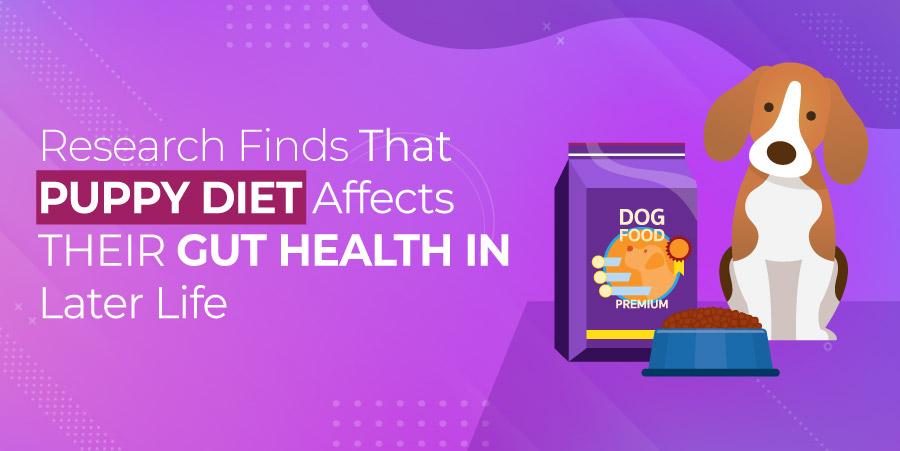Research Finds That Puppy Diet Affects Their Gut Health In Later Life
Research published in Scientific Reports Journal revealed that a puppy diet of non-processed meat, human leftovers, and raw bones might protect dogs against certain gastrointestinal disorders later in life.
A typical store kibble is mostly highly processed carbs, which isn't nutritious for dogs. So a kibble diet and regular rawhide chews were linked to an increased risk of gastrointestinal problems, particularly chronic enteropathy. These findings may have implications for pet dog gut health.
Chronic enteropathy is an ongoing gastrointestinal disorder characterized by diarrhea, vomiting, and weight loss. Kristiina Vuori and colleagues examined associations between dogs' diets in early life and owner-reported incidence of chronic enteropathy (CE) later in life using data from the DogRisk food frequency questionnaire, which was established in 2009 at the University of Helsinki.
Owners reported what foods they fed their dogs and how frequently they fed them during puppyhood (two to six months old) and adolescence (six to eighteen months old). The dogs' diets were then linked to whether or not they developed chronic CE later in life. The sample included 4,681 puppy diets and 3,926 adolescent diets, with owners later reporting CE symptoms in 1,016 (21.7%) puppy diet group individuals and 699 (17.8%) adolescent diet group individuals.
In comparison to a highly processed kibble diet, they found that dogs fed a non-processed meat-based diet in puppyhood or adolescence, including raw red meat, organs, fish, eggs, bones, vegetables and berries, or human leftovers and table scraps, like cooked potatoes and cooked fish, were significantly less likely to experience CE symptoms later in life.
Non-processed diets and leftover foods in puppyhood reduced associated CE risk by 22.3% and 22.7%, respectively, whereas a highly processed diet increased associated CE risk by 28.7%. In adolescence, non-processed diets and leftovers were associated with 12.7% and 24% lower risks of CE, respectively, compared to a 14.6% higher risk of CE with a highly processed diet.
The findings were that feeding puppies raw bones or cartilage twice a week was associated with a 33.2% lower risk of CE, while feeding berries twice a year was associated with a 28.7% lower risk. Giving puppies processed and chemically treated rawhides daily, on the other hand, was associated with a 117.2% increased risk of CE.
According to the authors, these findings suggest that providing puppies with a variety of non-processed and whole foods early in life may reduce the risk of future incidences of CE. However, more research is needed to confirm the findings, including studies examining dog diets over the course of their lives.







